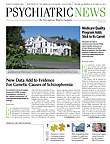Starting a residency involves making a major transition from being a medical student to becoming an intern. Residency can be especially overwhelming for international medical graduates (IMGs) such as me, since in the initial few months, we are trying to adapt to a new country, a new culture, and a new work style.
As we proceed in our residency, we will gain knowledge about DSM, pharmacotherapy, and structured education. But how do we learn about the multiple issues and dilemmas beyond diagnosis and drugs?
As an IMG, I struggled to understand the local slang used in day-to-day conversation. I remember my first day as an intern when I started my emergency room rotation. I was asked to see a patient with leg pain. During the interview, the patient mentioned he had “a Charlie horse.” I had no idea what it meant until I looked it up on the Internet.
Before starting my residency, I did an externship in psychosomatic medicine. I quickly noticed that a few patients named John Doe or Jane Doe were admitted. The nurses had a good laugh when I casually asked if that was a common name.
Many of my resident colleagues and I also had difficulty understanding the levels of behavioral health care, housing programs, and other such issues. In my initial few rotations, I found that the patients knew more about these than I did, and they could sense that I was a “newbie.” I learned the most on this subject during work in a dual-diagnosis unit. Some of the patients have been in and out of the hospital and rehab facilities multiple times and know the system well.
I learned not to be frazzled when I saw a patient getting frustrated when I did not have an answer to all of his placement-related questions. My advice in such a situation is to speak with the social worker or your attending to be more prepared when you see that patient again. Once you have a better understanding of the levels of care in the mental health system, you will find yourself more confident when counseling patients and their families.
During my rotation in primary care in the inpatient service, I was asked to counsel a family member of a terminally ill patient regarding hospice and palliative care. I had to defer it to my senior resident, since at that time I had little understanding of what those services entailed. I would strongly advise psychiatry residents to familiarize themselves with the concepts of comfort care, advance directives, and DNR/DNI, as issues and requests for information or advice related to them will likely arise during geriatric psychiatry rotations. Being familiar with these will also help if you are asked to make capacity evaluations during calls or C-L rotations.
As a new intern or resident, there will be many “what if” moments, especially during calls. “What if I order something wrong?” “What if I do not order something important?” My advice is to speak with your attending or seniors. They were new residents not very long ago. Your handbooks, resident’s manual, and smartphones are your best friends during residency. Be sure to use them regularly and mark the relevant pages so that you can look up information quickly when needed.
In addition, it is important to be courteous to the nurses, behavioral health assistants, and unit clerks, who have been in the field for a much longer time than you—a lot can be learned from them. Working in the unit can be so much more rewarding with friendly faces around.
All that being said, the first year of residency can be one of the most memorable years of your training, and looking back you will find yourself amused over certain anecdotes. I will never forget a patient I saw for capacity evaluation who repeatedly mentioned, “Lucifer told me to do this, Lucifer wants this.” I would not have figured out “who Lucifer was” had I not asked a family member for an explanation.
Last but not least, get ample rest every day, and shut off your brain before bedtime to have a clear mind the next day. Spend time with your loved ones, develop a hobby, and have a life outside the hospital. ■

